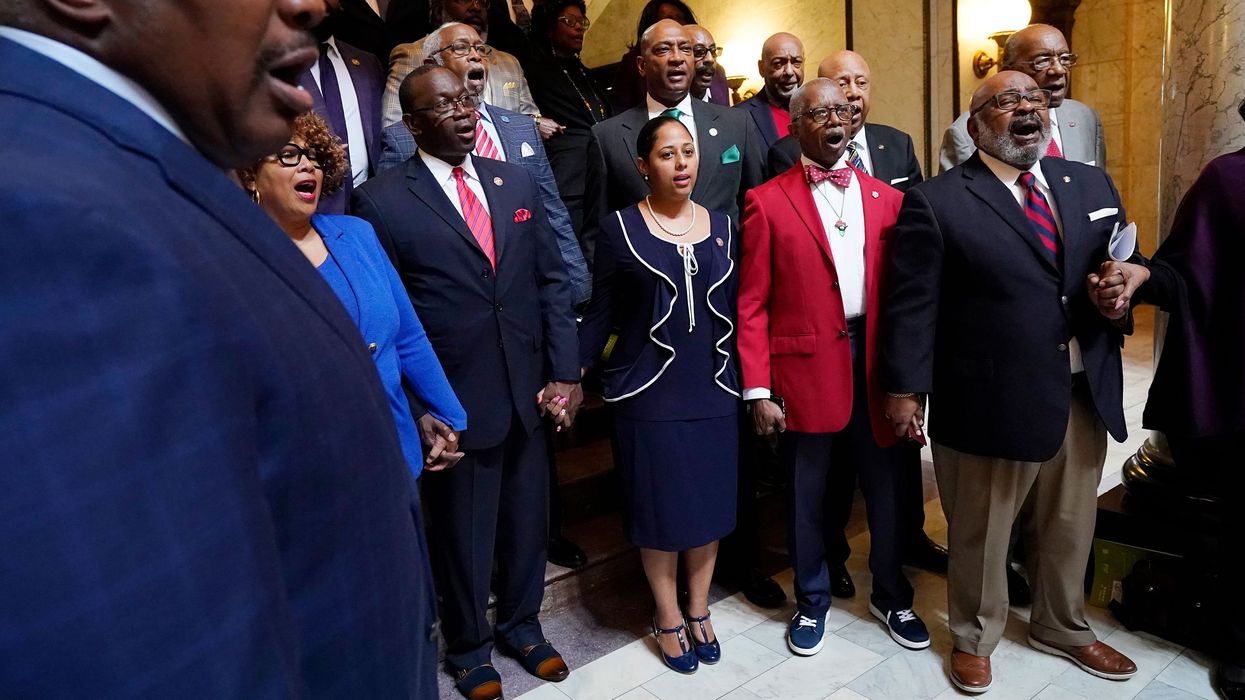(CNN) — Lawmakers in Mississippi are at odds over a bill that would create an unelected, state-appointed court system in a district within Jackson, a majority Black city, with some concerned that the move smacks of a modern-day Jim Crow regime.
The Republican-controlled Mississippi House of Representatives passed a bill (HB1020) last week to expand the Capital Complex Improvement District, a defined area within Jackson, and create a separate court system within the city — which is 83 percent Black, according to US Census data — that two state offices, both of which are currently held by White officials, would entirely appoint.
CNN has not been able to determine the ethnic makeup of the current CCID, but Rep. Trey Lamar, the bill's sponsor, says that under legislation that passed the state House to expand the district, the makeup would be about 55 percent Black.
The bill passed the state House 76-38, primarily along party lines. It now heads to the state Senate, where the Republicans hold a 36-16 majority.
Some lawmakers, like Lamar, say the new measure is needed to address Jackson's growing crime problem, but state Democratic leaders say efforts like this are about control, not about helping the people of Jackson.
If the bill becomes law, Mississippi Supreme Court Chief Justice Michael Randolph could appoint judges and state Attorney General Lynn Fitch would appoint prosecutors, unlike in other areas of the state where judges and prosecutors are elected. Both Randolph and Fitch are White.
The Mississippi House Democratic Caucus said in a statement on January 31, "HB1020 is a racist, unconstitutional power grab. It is control of a city masquerading as concern for its citizens." They assert that this bill "follows a pattern we've become all too familiar with: starve a community of much-needed resources, blame Black leaders for incompetence, attempt to take over."
But Rep. Lamar is pushing back against the Jim Crow characterization of this bill. Under current law, Lamar says, some judges can be appointed by the presiding judge of the Mississippi State Supreme Court to help with any backlog of cases.
"I hate that the other side used race as much as they did," Lamar told CNN. "The bill is totally racially neutral. It is only designed to assist the court systems in Hinds County by helping a portion of Jackson, the Capitol Complex Improvement District, which was carved out back in 2017 and had full support of the Democrats back then."
Lamar told CNN the state's constitution gives the legislature the authority to create "inferior courts" and the decisions of the appointed judges could be appealed to the Hinds County Circuit Court within 30 days.
Ultimately, the bill is meant to address public safety in Jackson, Lamar said. "The fact is — Jackson has a crime problem, the High County Judiciary has a severe backlog in cases and this bill is designed to help both of those areas," Lamar told CNN affiliate WAPT.
The bill has faced criticism from local Jackson leaders and advocacy groups who say it dilutes residents' voting power and does not address the root causes of crime.
The elected judges of Hinds County, alongside the Hinds County prosecutor, all signed and released a joint statement on January 30 strongly denouncing the proposed measure. According to them, it would remove the authority of elected judges to hear and preside over cases in the Capitol Complex Improvement District and unconstitutionally give that authority to the appointed judges, violating the rights of voters in Hinds County to elect their own judges.
The Southern Poverty Law Center's Action Fund echoed this statement in a tweet posted Friday, saying, "HB 1020 is authoritarian and a blatant state effort to dilute the rights of Jackson, Mississippi, residents. It would strip Jacksonians of voting power to elect judges and district attorneys they feel serve their best interests."
Senate Democratic Minority Leader Derrick Simmons and House Democratic Minority Leader Robert Johnson released a joint statement denouncing the bill, calling it an "insult and distraction" and likening it to modern-day Jim Crow.
Jackson Mayor Chokwe Antar Lumumba and most Black members of the House opposed the bill after the nearly five hours of debate on the floor.
Democrats proposed seven amendments to the bill, including making the judges elected instead of appointed and requiring appointed judges to be residents of Hinds County. Both amendments were defeated, and Lamar responded to the latter by saying that allowing judges to come from other areas would ensure "the best and brightest" could serve.
"The question has been raised whether the state is trying to take over the City of Jackson," Democratic state Sen. John Horhn told WAPT. "Well, if it looks like a duck, and walks like a duck, and quacks like a duck -- it's a duck."
Lamar told CNN that he expects the bill to reach the floor of the Republican-controlled Senate within the next three weeks, where amendments to the bill can still be made.
The-CNN-Wire
™ & © 2023 Cable News Network, Inc., a Warner Bros. Discovery Company. All rights reserved.
- Justice Department Sues City of Jackson, Mississippi Over Water Crisis ›
- How Jackson Mississippi's Water Crisis Is a Case of Environmental Racism ›
- Mississippi Schools Are Still Working to Desegregate | AdvocateChannel.com ›
- Jackson Mississippi to Receive $115 Million to Solve Water Crisis ›
- Jackson Residents Fight Back Against Bill Proposing State-Appointed Judges ›

















































